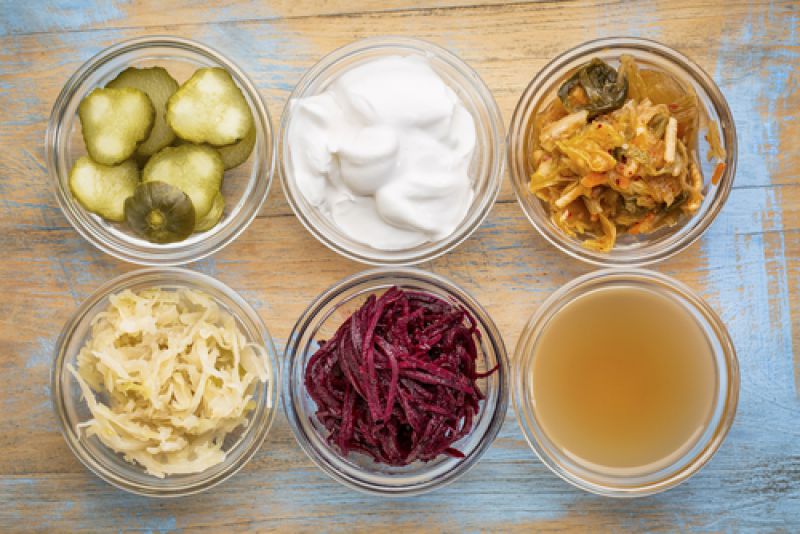Long before the advent of canning and freezing, people used the process of fermentation to preserve fresh produce from summer gluts to be used in the winter months, when food was scarce. Although fermented foods are centuries old, many experts are now hailing them as “superfoods”, which are believed to improve our gut health, aid digestion, boost our immune systems and help us maintain a healthy weight.In the hygienic environment in which we now live, it’s easy to view bacteria as the enemy. However, the human body contains trillions of microorganisms, which outnumber our cells tenfold, weighing in at an astonishing 2 to 6 pounds. Scientists believe that many of these bacteria play a vital role in human health and that the sterile nature of our diet, together with the widespread use of antibiotics, although it has saved many lives, may have had unwelcome consequences in destroying good bacteria in our bodies, as well as bad ones. This may be one of the reasons behind the rise in obesity, allergies, irritable bowel syndrome and even depression.
The bacteria in fermented foods add to the diversity and population of your gut flora, helping to fend off the unhelpful microorganisms that lead to disease. The fermentation process also partially breaks down these foods, making the nutrients easier to absorb. Instead of buying expensive pro-biotic supplements, Charlotte Pike, author of “Fermented Foods” suggests that by eating naturally- fermented foods as part of a healthy diet, “Over time you will see a real improvement in your health and wellbeing, physically, mentally and emotionally”. So, here are a few fermented foods that you might like to try: -

- Sourdough bread - with the increasing prevalence of gluten and wheat intolerance, many people that can’t eat normal bread without bloating, find that sourdough bread is easier to digest. The sourdough starter breaks down the phytic acid in grains, making vitamins and minerals easier for our bodies to absorb. It tastes pretty good too!
- Sauerkraut – this German favourite is essentially fermented cabbage, and is a good source of dietary fibre, vitamins, enzymes that help the body absorb nutrients, and bacteria believed to help support the immune system. You can find out more about it and how to make it in this BBC recipe bbcgoodfood.com/recipes/simple-sauerkraut
- Probiotic yoghurt - live, unpasteurised yoghurt contains a number of friendly bacteria, which are believed to promote good gut health. Be aware that many commercial probiotic drinks and yogurt-based desserts contain a lot of sugar. It is quite easy to make your own sugar-free live yoghurt, using a wide-necked vacuum flask -find instructions here blog/make-yoghurt-scratch-5-easy-steps/
- Kimchi - a Korean dish made from salted and fermented vegetables, which also contains beneficial bacteria, believed to help digestion. Here's Jamie Oliver's recipe, if you feel like making your own jamieoliver.com/recipes/vegetables-recipes/kimchi/
- Kefir – this is a slightly acidic, creamy drink similar to live yoghurt, which is also a fermented food. It is usually made with cow’s milk, although milk from goats, sheep and even coconut milk can be used. The fermentation process breaks down the lactose in the milk and kefir is a rich source of calcium and vitamin K, both important for bone health. It also contains about 30 strains of beneficial probiotic bacteria.
To make the most of fermented foods you need to either make them yourself or look for small-scale producers fermenting in traditional ways. Supermarket products will probably have been pasteurised to prolong their shelf life, so may not be so effective.
If you are in good health, introduce fermented products to your diet slowly in small quanities. Obviously, if you have allergies, intolerances or serious conditions like coeliac disease, fermented foods should be consumed only with the approval of your doctor. The best advice is still to base your diet on a colourful variety of fresh fruit and vegetables with moderate amounts of protein, fats and carbs, but a small portion of pickled or fermented foods on the side might be worth considering. Sauerkraut anyone?
![]()
![]()
![]() blog
blog![]()
![]()
![]() blog
blog
